Mentorship is a buzzword that we often hear when talking about someone’s personal or professional growth. In simple terms, mentorship refers to someone giving using their experience to provide advice and guidance to someone who asks for it. A CEO may mentor his managers in the ways of managing teams because he has been doing it for decades longer than they have. A boss will often mentor an employee to ensure they are growing properly in their role.
Mentors do not have to be managers or people who hold several years worth of experience. The key criteria to being an excellent mentor is being able to educate your mentee and pass along valuable information that you have learned from someone else. Many companies have turned to a peer mentorship program to ensuring that employees are getting the advice and guidance that they seek.
On paper, this is a wonderful idea that should be adopted across the board. It allows you organization to leverage the knowledge it is already paying for and provide a channel for it to be spread to other employees. It also builds a company culture of teamwork, collaboration and empathy. However, for this program to work, there must be processes and procedures that are put in place to ensure that everyone finds it valuable and it is worth their time and energy.
Start With A Survey
When asking people to sign up to be both mentors and mentees, it is important to gather as much information as possible about what they are looking to get out of it. This will allow you to match people up properly later on. For example, you may want to provide a mentee with a list of ten topics and have them rank them in order of importance. These topics can include items such as workplace politics, presentation tips, managing up, and other skills that they are interested in being mentored on.
For a mentor, it’s critical you ask them to list the topics they feel the most comfortable speaking about. You also want to request they speak about their background and what areas of business they have the most experience in. For example, if someone has been working in a department by themselves for most of their career, they are not a good match for someone who wants to understand how to better communicate with their teammates.
Manually Match People
As we touched on earlier, matching the right people is the most important part of the entire program. The experience is only valuable if both parties get something out of it. A mentor should be able to talk confidently and at length about the topics that are most important to the mentee. You can take this a step further by matching people who work in different departments. This allows participants to also learn how different parts of a company work.
To do this, you will need to manually match up your list of mentees with the appropriate mentor. As we mentioned above, it’s key to survey all participants. Once that is complete you can compare your lists and match up those who are deemed to be a good fit. It is likely that some mentees will list desired topics that their chosen mentor is not an expert on. As long as the mentor can speak about a few of the topics at the top of the list, the mentee will still be able to learn a lot and find value in the entire experience.
Suggest Participant Guidelines
While both parties might be excited about beginning this program, it’s possible they will struggle to figure out where to start the conversation or how to keep it going after a few meetings. We suggest providing mentees with a list of questions for them to start with. You can begin by listing out generic questions that anyone would ask and then go into questions that are specific to the topics they list in their survey. You can also give the mentee advice about how to brainstorm what additional topics to cover, what questions to ask, and what new skills you want to learn at the conclusion of the program.
On the other side, we suggest providing the mentor with a list of questions they can ask the mentee. A mentor should start by getting to know their mentee. This includes what they do at the company, their experiences, where they worked previously, and what skills they currently possess. From there, a mentor can ask conversation starting questions around future plans, career growth, goals and objectives, and what they plan on doing with the information gained in this program.
Encourage Off-Campus Meetings
Program participants should feel free to speak about whatever is on their mind during their meetings. Most employees may not feel comfortable doing this in a conference room in the middle of the office. It is advised to encourage your mentors and mentees to conduct their weekly sessions outside of the building. This could include getting a cup of coffee, ordering lunch, going for a walk, or sitting on a bench outside.
Off-site meetings allow people to speak freely about what is on their mind. This is also a unique opportunity to showcase employee appreciation as well. Inform program participants that any meals or drinks purchased during these meetings can be fully expensed. Employees will feel even more comfortable leaving the office and will also feel appreciated. This is a small but impactful gesture that shows you support the program.
Conclusion
Peer mentorship programs have the ability to impact everyone who takes part. It is a vehicle that allows knowledge and experience to travel from person to person, instead of being stuck inside the mind of one person. The key is give the program the time and attention it deserves. This includes doing the research, taking time to match the right people, and give all participants the support and tools they need to get the most out of the entire process.
Let’s Talk
Are you looking for ways to energize your workforce and help aid their personal and professional growth?
If so, we should talk! The team here at RGLP group would love to learn more about your organization and the people you employ. Please send us a note at Contact@therglpgroup.com to get started.



